Hello dear friends,
What is it about books that make a space, whether in the kitchen or home library, or even, perhaps, out in the garden?
My curiosity about books (and composting) began a few years ago when I composted a miniature set of Shakespeare. It had sat for more than a decade on a shelf in our living room, but when I finally dusted it (don’t ask about my cleaning habits), one of the covers fell off. And that’s when I realized that it was not, as I had thought, a vintage leather heirloom, but was, in fact, faux. Like many of Shakespeare’s characters pretending to be someone other than who they really are, these books had me duped.1
At the time, I figured Shakespeare would approve of his pages feeding a tree that could, in theory, create other pages…Anyway, me being me, it made perfect sense in 2022 to let some other old books slowly decompose…in the garden, together, in their own ‘garden library.’
Because, what in fact should I do with art books filled with black and white photographs and my notations covering the pages?
What to do with stories by and about men, promoting ideas of heroism at a time when those stories seem particularly irrelevant?
And just what is ‘core knowledge’ and ‘cultural literacy’ in the context of the climate crisis?2 Might there be something we’ve missed because we’ve spent so much time in our heads with books and words?
And could there be something to learn from these objects interacting with the land from which they came?
Indeed, what might these ‘micro-dramas’ have to say?3
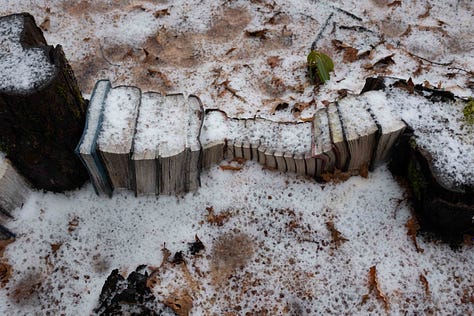
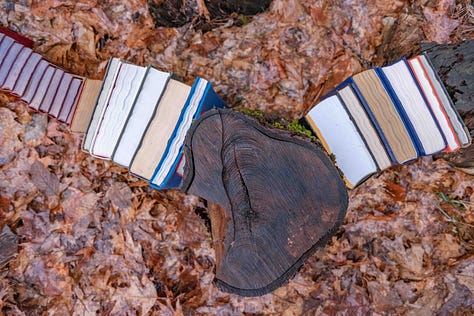
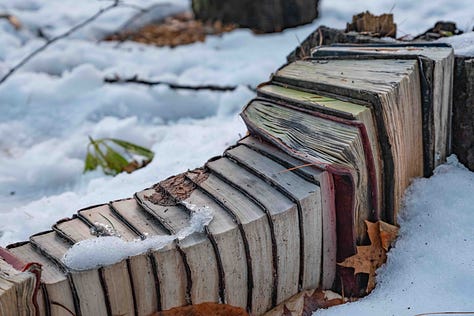
I know there’s something here about perspective and point of view…but I wonder, is this entire line of inquiry okay, or, as one of my reviewer’s at a portfolio review last fall suggested, might my composting my two diplomas (Origin Story, Part 4) and all these books be fundamentally disrespectful, especially to those for whom Harvard and antique sets of Shakespeare are but a dream?4
Other reviewers and people I met at that same event were fascinated by my choice and the meaning embodied in the compost photographs I shared, especially in the context of my mother’s death.5
In fact, years before my mother died, she said to me, almost in a panic “Lyn, don’t you ever dare compost my Radcliffe diploma!” She’s safe. I haven’t…yet. But what to do with her well-worn books filled with marginalia that no used book sale would accept? They too are here. As are my mother-in-law’s college music books.
In the months that followed my first reviews in September 2022, other reviewers encouraged me to explore more…So here I am, observing and asking questions and finding myself in awe every time I visit the ‘garden library…’
the way the light changes,
and comfrey grows along with green mold on book pages.
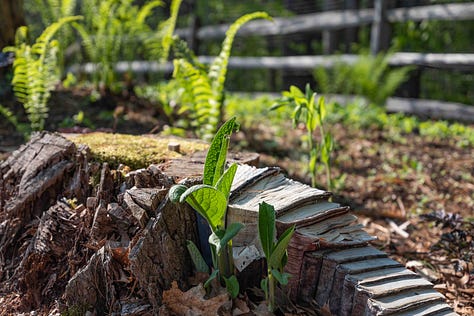
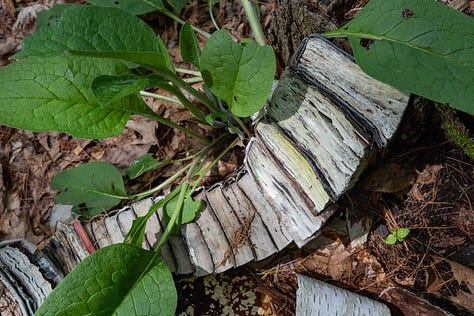
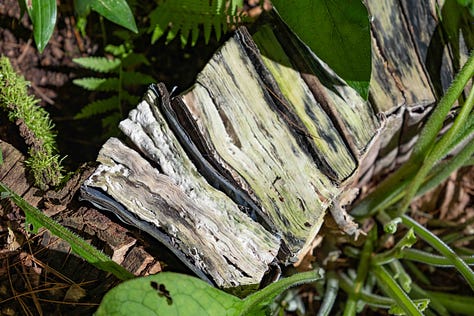
It occurs to me that perhaps the ‘knowledge’ ‘we’ need is not the ‘knowledge’ ‘we’ know…it’s in the soil, beneath the trees, among the pollinators, in the lived experiences of those who inhabited this land long before me and my colonizing immigrant ancestors,6 and in our relationships to places we care about.
So following the advice of Robin Wall Kimmerer, I am learning to practice kinship with place, exploring the idea that when we “work to heal the earth, the earth heals us” in return.7 These are powerful words and a compelling invitation to go deeper…
..to pay attention to lines of pages in a book and on bark,
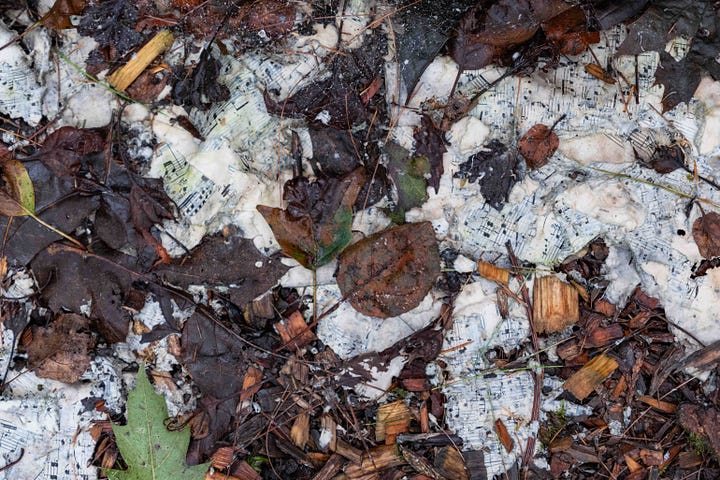
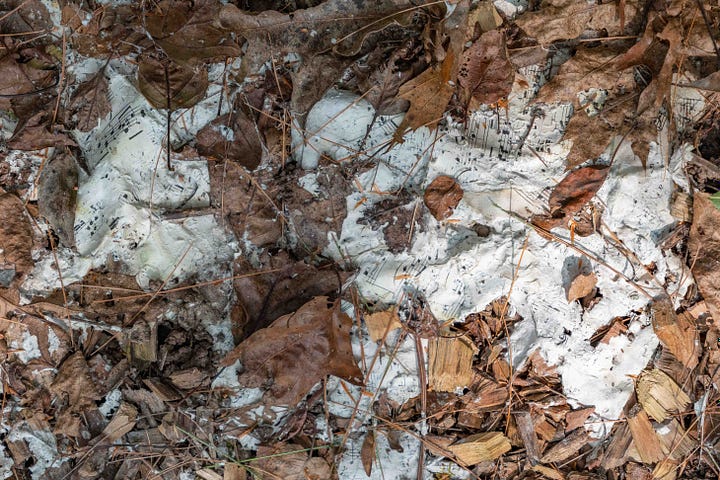
to honor the mess…
and to invite myself and others to stay a while by setting the stage, as it were, for this soul-nourishing cultivation of kinship among people, place and all those non-human physical and spiritual beings who inhabit the all of it.
Isn’t it cool that just by putting a few books between a few stumps in a shady nook this story emerged?
For years, images conjured in books created magical places in my imagination and now the placement of these books has created a setting in which I can imagine.
Calvin finds peace, Lilly finds joy,
and I’m finding a lot of both.
As I said earlier, I’m in awe. Last week it was The Red Book; This week it was Shakespeare and other books; Next week, well, you’ll just have to stay tuned, but you can be sure there will be plenty of dancing…
As always, thank you for sharing your time and this space with me.
With cheers and gratitude for you being you,
Lyn
What is it about books, place making, and kinship? Share your thoughts and reactions in the comments section below. I can’t wait to hear from you!
And if you know someone who might be interested in 13 Tons of Love, please share - - I’m just starting this project and am excited to bring more people into the conversation…
And if you haven’t subscribed yet, please do so. Even better, if you’d like to support my ongoing explorations and stories, please become a paid subscriber - - it’s a lot less expensive than purchasing one of my photographs, and it takes up much less space.
It actually took me a few years to compost the entire set. I started with the histories in 2019 and ended with the comedies in 2021.
In the 1990’s, The Dictionary of Cultural Literacy articulated a set of historical narratives that, according to the author, every American ‘should’ know. It’s all about having a common body of knowledge to ensure survival of our democracy. The premise makes sense, but I am forever skeptical about being told what I should or should not know, especially the focus of that knowledge is linear and based on words. Here’s an article from the New York Times published at the time the book was published. What do you think?
In 2018, while in Idaho visiting my sister and her husband, my brother-in-law talked about why he was not interested in traveling. He said to me, “Every day is filled with all these amazing micro-dramas right in my back yard or in the kitchen. I don’t need to go anywhere!” This idea of micro-dramas is the basis for my focus on ‘micro-climate’ photography which is for me the celebration of everyday ‘micro-dramas,’ small moments symbolizing big ideas and issues, in a localized and accessible way. In ecology, a micro-climate is the climate of a very small or restricted area, especially when this differs from the climate of the surrounding area, but micro-climate photography offers an expanded definition of this idea.
One of my portfolio reviewers at last year’s Filter Photo Festival questioned my composting my two degrees (see 13 Tons of Love, 9/28/23: The Origin Story, Part 4), likening it to book burning. Other reviewers and photographers attending the festival were inspired by my honesty and curiosity, admiring my reverent irreverence.
I wrote about this in The Origin Story, Part 1: Compost & Mothers.
In this case ‘we’ means my people - white settlers and privileged people in power (of European descent) who for centuries consciously obliterated all non-academic (native, indigenous, alternative) ways of knowing and being.
From Braiding Sweetgrass. The full quotation is: “Because the relationship between self and the world is reciprocal, it is not a question of first getting enlightened or saved and then acting. As we work to heal the earth, the earth heals us. The land knows you, even when you are lost.”

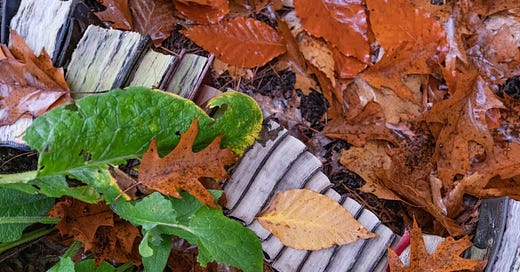






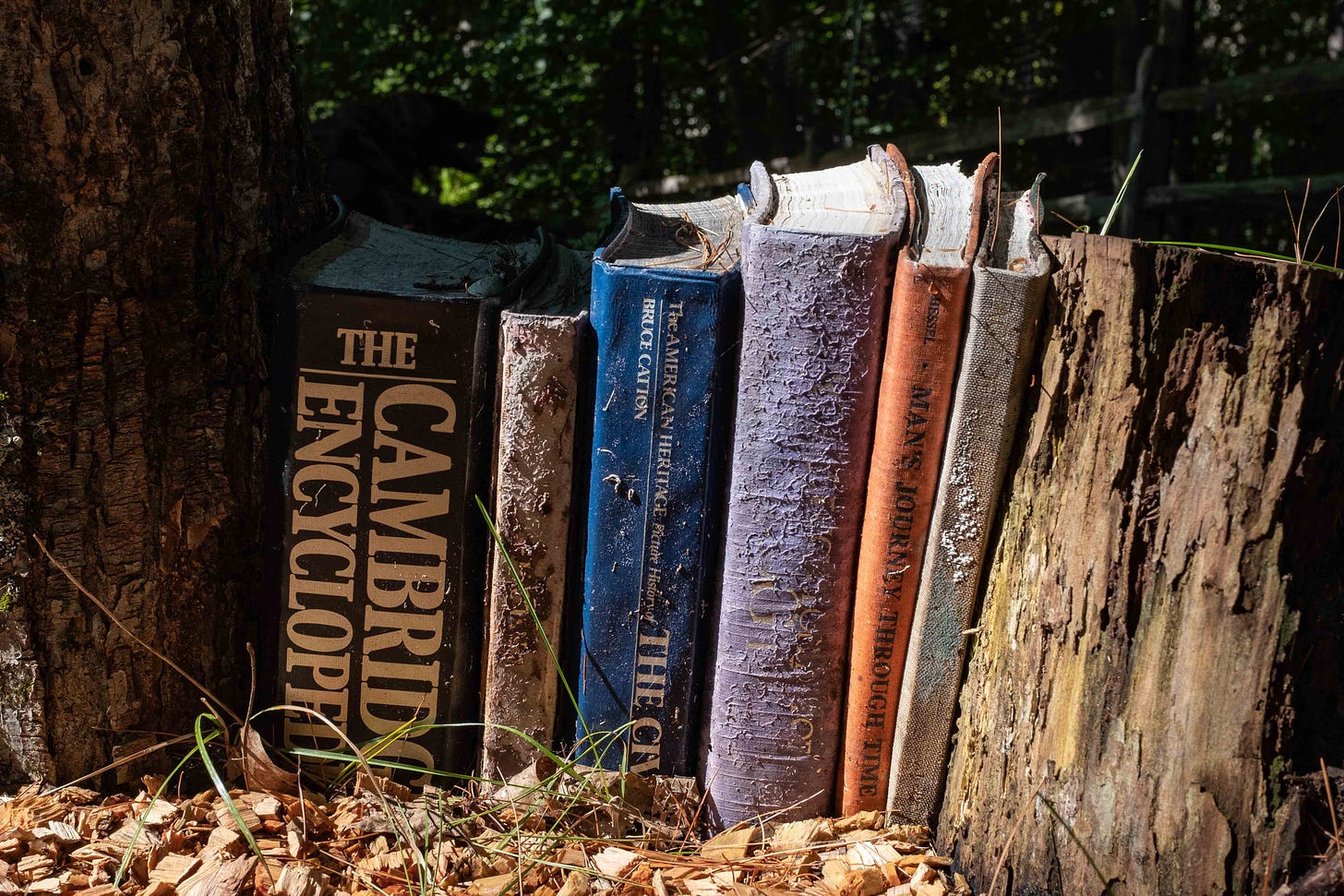



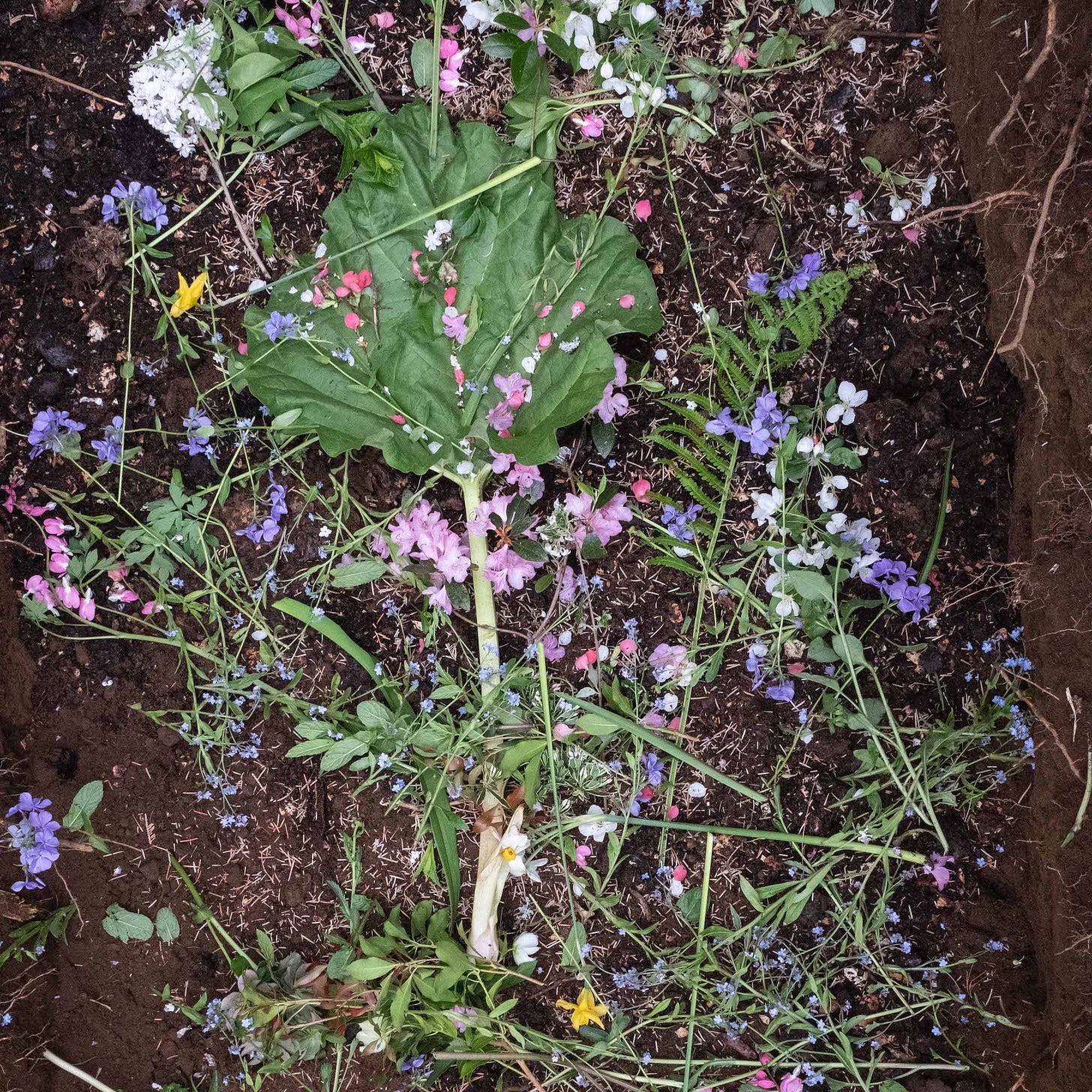

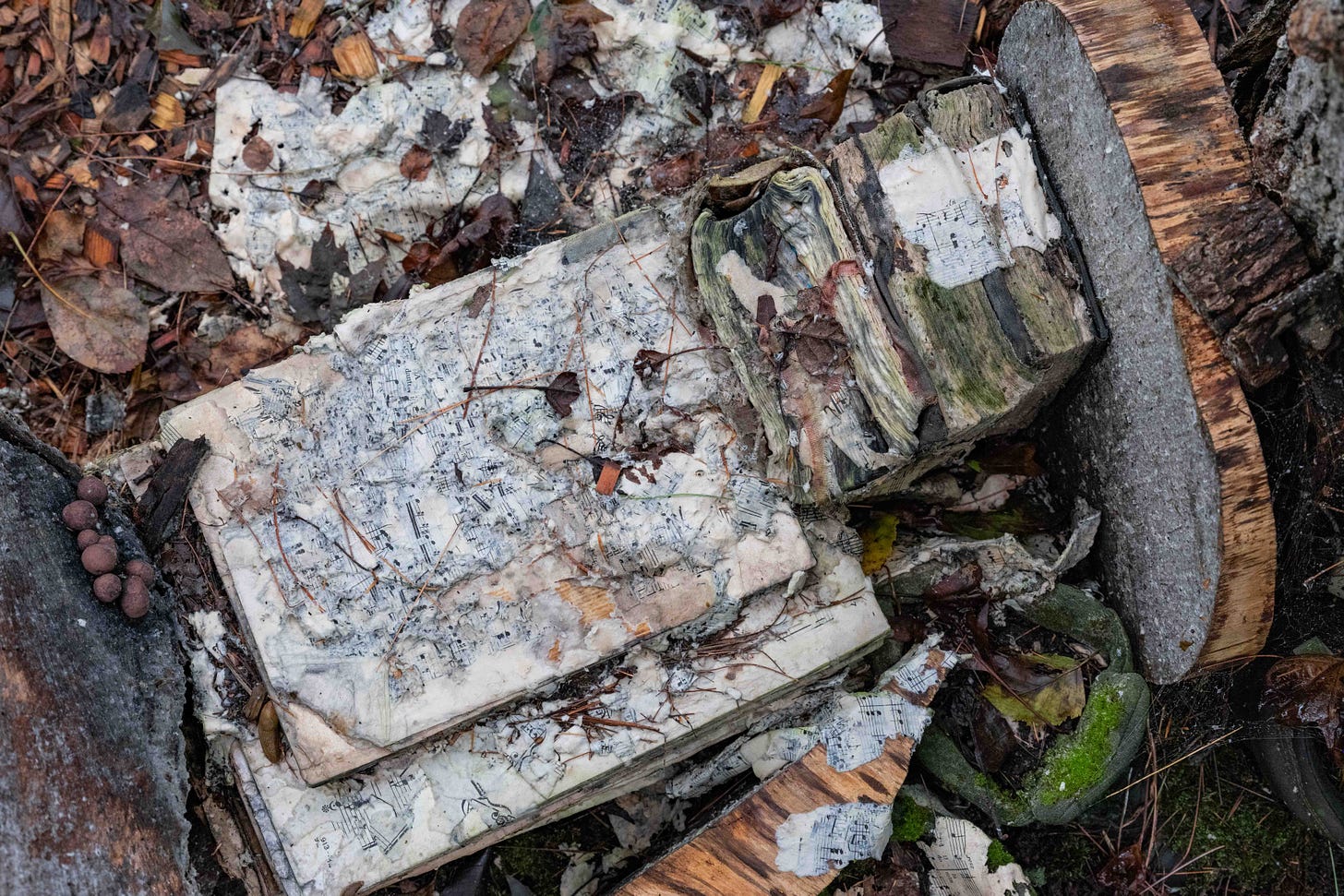


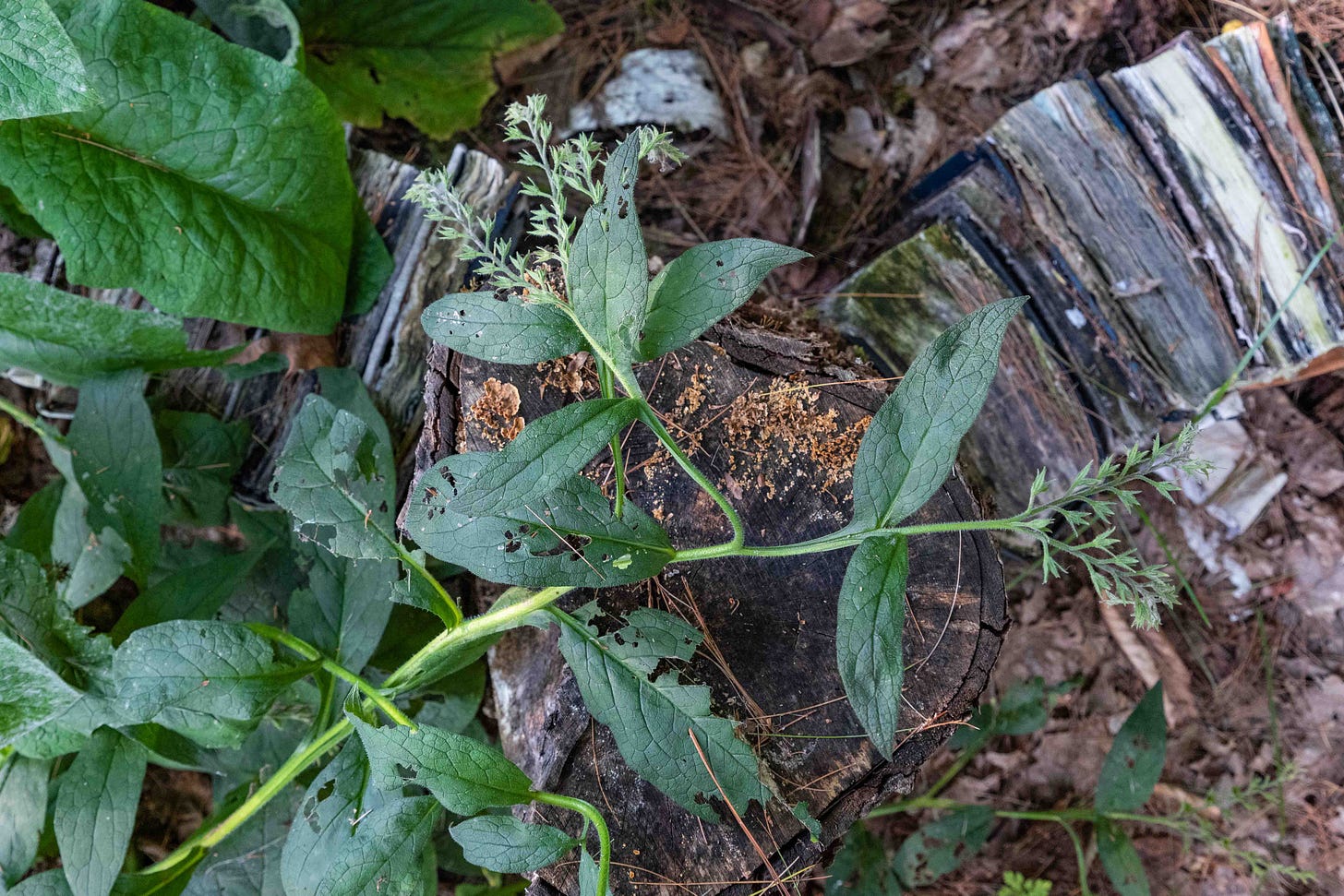
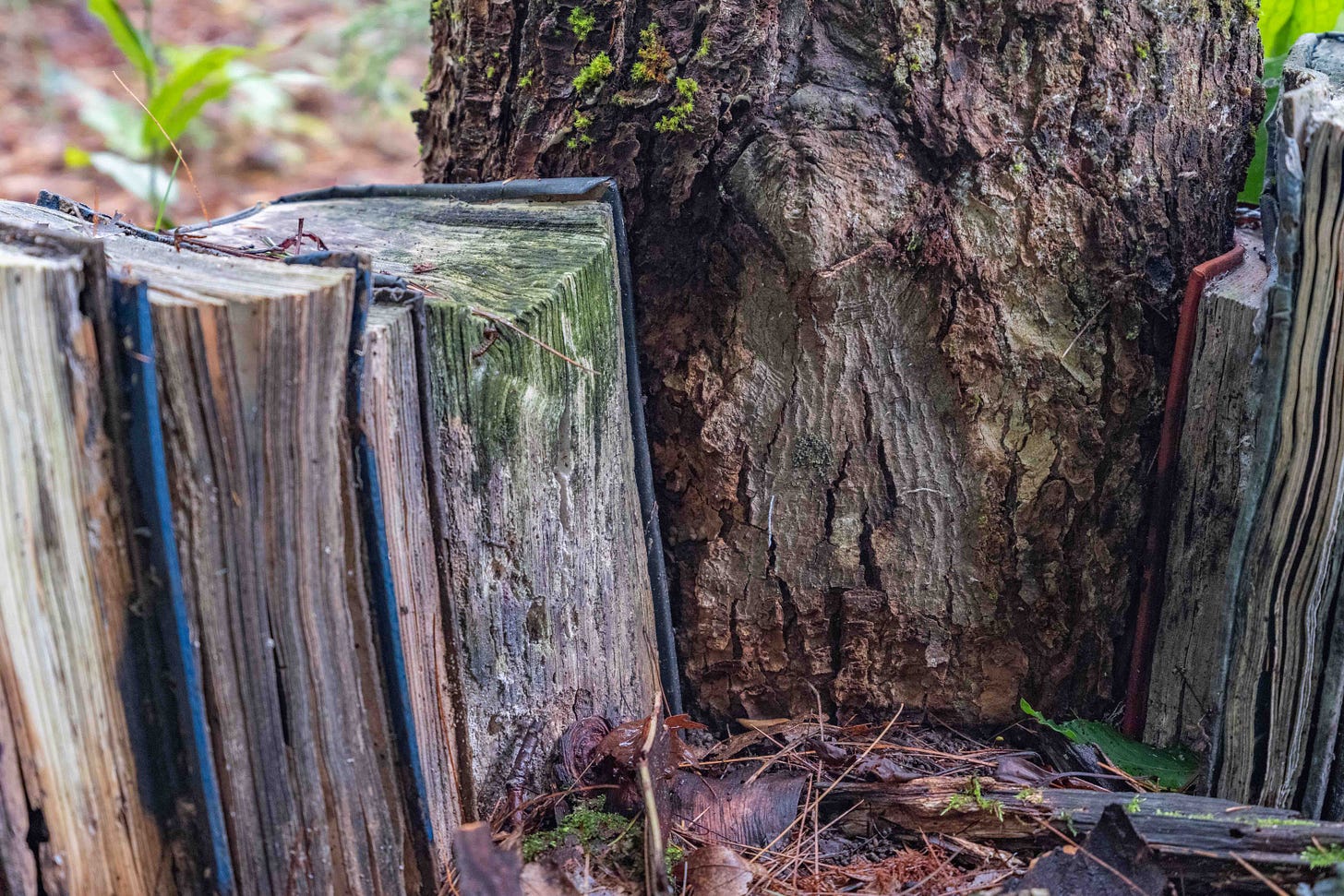



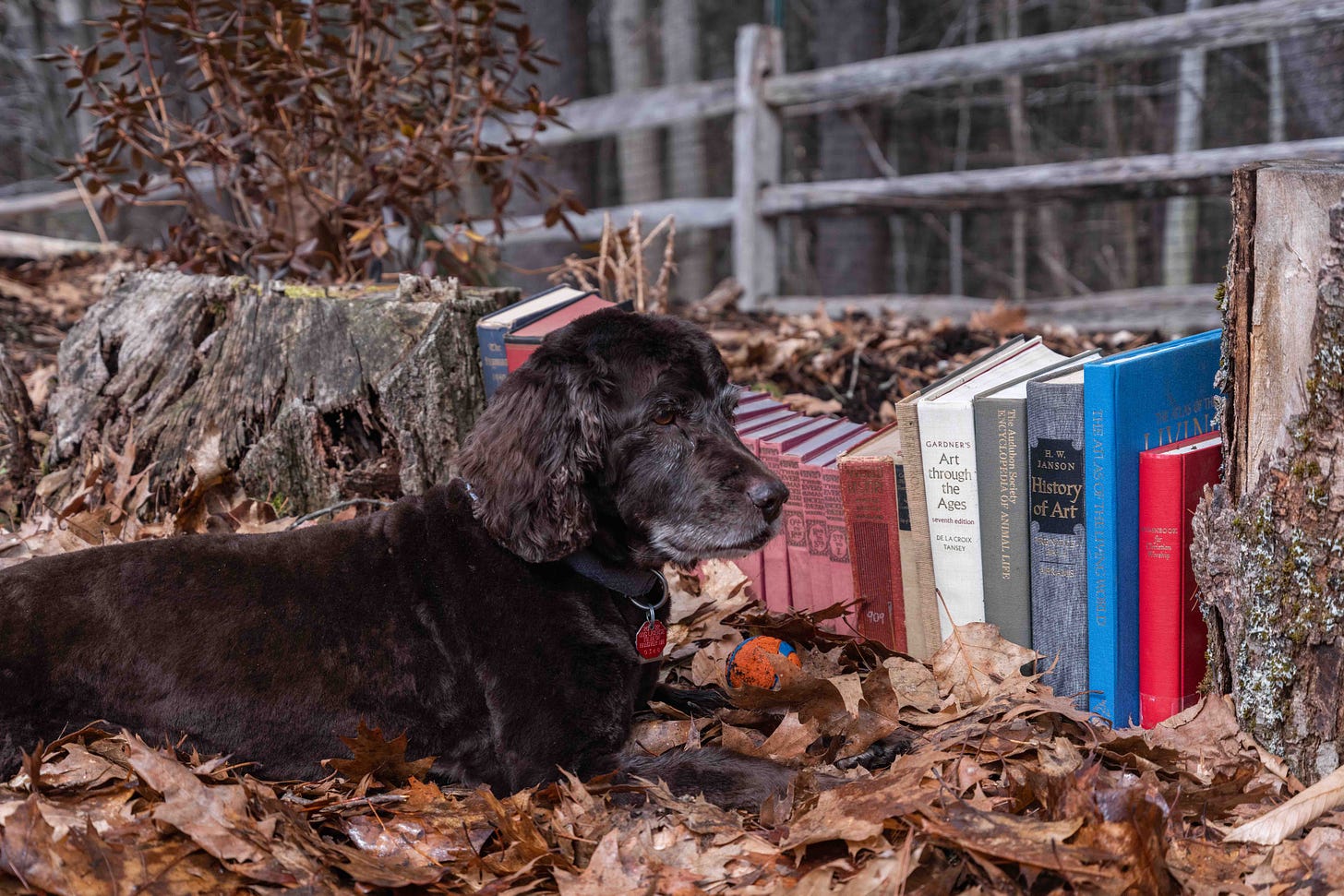
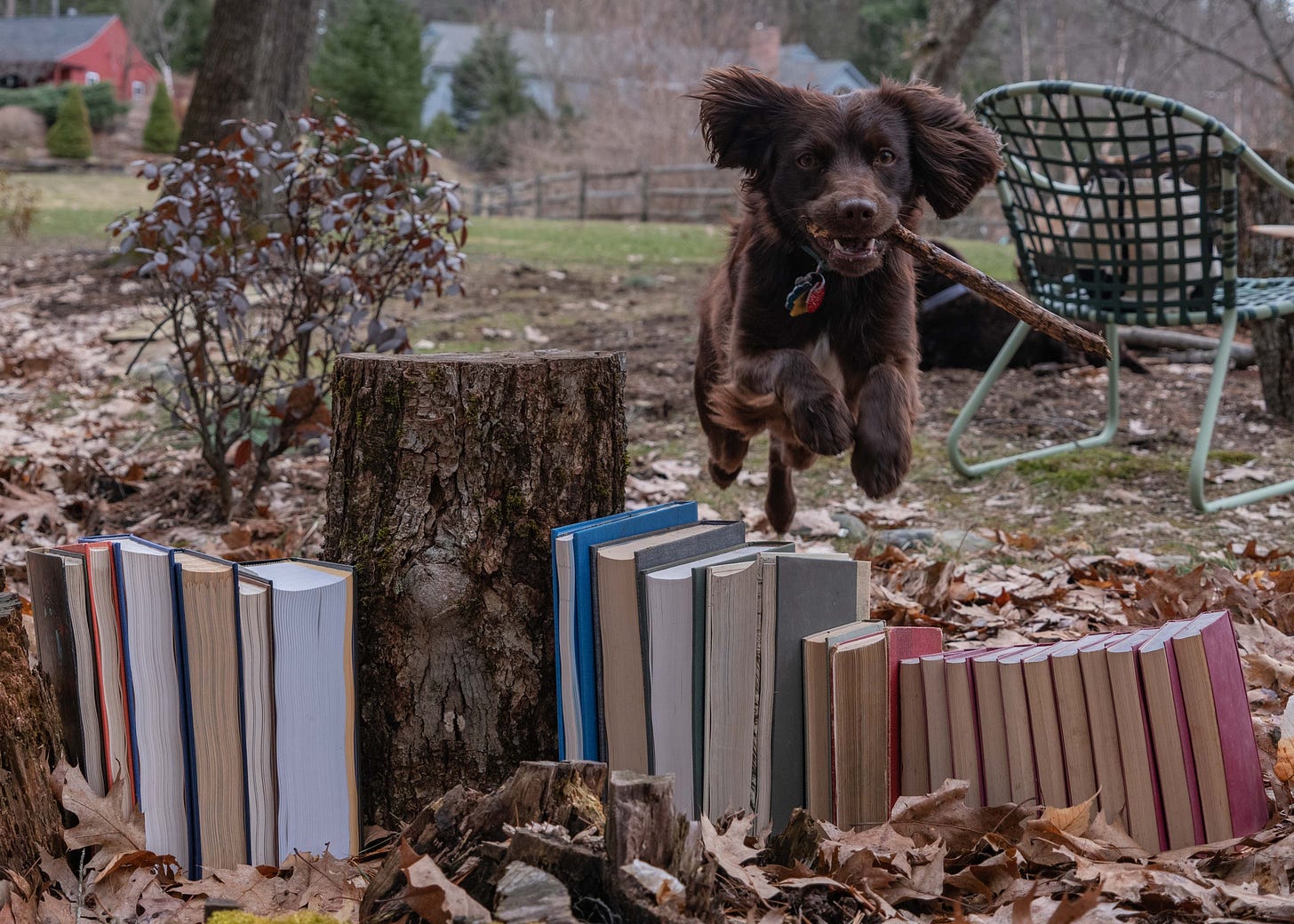

Lynn, I loved this project when you posted it on Kinship. Today, Austin Kleon had an amazing post on gardening metaphors for creative work and it reminded me of this project. I found this post and shared it to his readers.
I love the beauty of your wondering about these images - Apollonian "order" (books) and natural order/chaos, not at odds - just melding, mirroring, merging, emerging as something new.